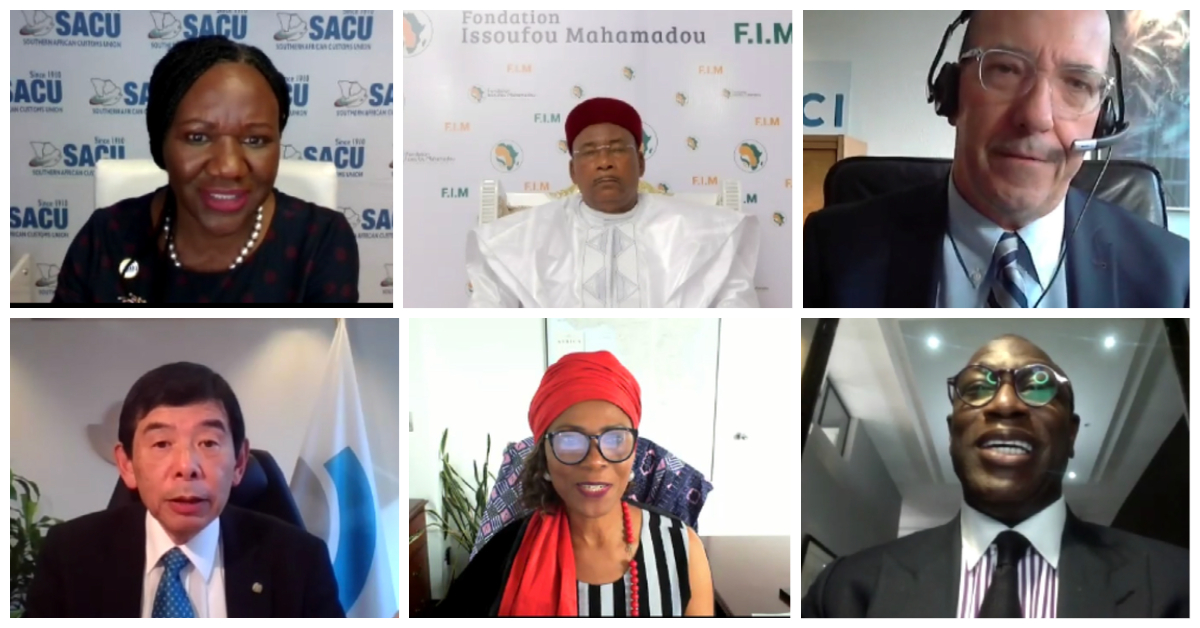New York, 29 September – African governments can turn trade barriers into accelerators that build back stronger economies and accelerate intra-continental trade. At a high-level side event on the margins of the 76th United Nations General Assembly, the African Continental Free Trade Area (AfCFTA) Secretariat, Africa Investor, and the United Nations Development Programme (UNDP) presented the new and innovative Regulation as a Stimulus economic model and urged African governments to support Micro, Small and Medium Enterprises (MSMEs) through intentional regulatory reforms that remove trade bottlenecks so as to enhance the continent’s socioeconomic recovery from the COVID-19 pandemic.
Through interviews with industry stakeholders, documentary research, econometric analysis, policy mapping and surveys, Regulations as a Stimulus (RaaS), developed by UNDP and Africa Investor, with support from the AfCFTA Secretariat and a research partnership with Cariolis Technologies, identifies regulatory levers that can be utilized by African Heads of State to quickly create change, offsetting some of the short-term adjustment costs and relieving firms from higher export costs.
Eminent panelists, including African Union's AfCFTA Champion - former President of Niger - Issoufou Mahamadou; Secretary-General of the AfCFTA Secretariat Wamkele Mene; Southern African Customs Union (SACU) Executive Secretary Pauline Mbala Elago; Trade and Development Bank President and CEO Tadesse Admassu; World Customs Organization Secretary-General Kunio Mikuriya; and FCI CEO Peter Mulroy; welcomed the timely focus of the Regulation as a Stimulus (RaaS) approach.
"The Regulation as a Stimulus initiative gives African Heads of State a credible and practical stimulus solution and post COVID-19 recovery tool," said AfCFTA Champion and former President of Niger H.E. Issoufou Mahamadou, in his Goodwill Message. "It is an accelerator that will speed up implementation of the AfCFTA and aims at mobilizing African Leaders towards bold and impactful action in the spheres of trade facilitation and regional integration."
“The model's capacity to put money directly into the hands of people by reducing costs linked to meeting export trade requirements, increases the capabilities of individuals to maintain incomes and employment through savings in better trade environments, while paying attention to women specific concerns” explained United Nations Assistant-Secretary General and UNDP’s Assistant Administrator and Regional Bureau for Africa Director, Ahunna Eziakonwa, co-convener of the event. “Regulation as a Stimulus is a unique and timely model for African governments to create policy and structural enablers that will aid the revival and transformation of economies post-COVID-19.”
According to the World Bank, the COVID-19 crisis has brought Sub-Saharan Africa to its first economic recession in 25 years - disrupting SME supply chains and adversely affecting the informal economy, on which 90 per cent of people depend for livelihoods. The socio-economic fallout has been brutal - as over 30 million people are pushed back into poverty.
The model illustrates that Africa could add $500 billion to business revenue, and create over 260,000 more jobs by 2025 - if transformative action is taken in five key areas: access to finance, business environment, infrastructure, before the border charges (export, import documents and procedures) and at the border costs. RaaS will facilitate inclusion and tackle inequality, since sectors where women are predominant, such as food, soft commodities, and textiles are projected for an 18 per cent uplift.
“The RaaS research shows how streamlining regulation can support implementation of the AfCFTA Agreement and potentially create savings for businesses on costs, generate stimulus, and support governments in creating favorable market conditions,” stressed Wamkele Mene, Secretary-General of the AfCFTA Secretariat. “Frameworks and support structures that enhance cross-border trade and reduce costs create platforms for ease of movement of professionals, enabling labor mobility across the region.”
Enhancing trade facilitation reforms is a priority in Africa's Regional Economic Communities (REC), as emphasized by Pauline Elago, Executive Secretary of SACU - and RaaS adds new impetus that can take those initiatives further, and faster.
Representatives of the private sector, like Dr. Tadesse Admassu of the Trade and Development Bank, and Peter Mulroy of FCI, and from multilateral institutions like World Customs Organization's Kunio Mikuriya, who also spoke at the event, lauded the initiative for its innovative approach, pledging support to its implementation.
“Through the RaaS model, African governments, supported by the private sector, can generate enabling environments, using frameworks such as digitization, standardization and legislation that support the sustainable growth of trade and trade-related infrastructure investment across the continent,” emphasized Hubert Danso, Chief Executive Officer of the institutional investment holding platform Africa Investor. “Financial regulatory frameworks such as regional agreements can widen access to innovative financing and enable cross-border financial flows. At the same time, national-level regulations could harness accountancy systems and self-assessment, increasing intra-African trade by US$35.8 billion by 2025 with an estimated annual growth of 14 per cent.”
The model will be taken on a roadshow across African countries - by the partnering Institutions - and continued advocacy will be made at key convenings - like AU and REC Summits.
Watch the full event: https://youtu.be/Tye1lCG_UQM
For further information and interview requests, please contact:
Addis Ababa: Ngele Ali, Regional Communications Advisor, UNDP, ngele.ali@undp.org, +251 97 656 9921
Pretoria: Bobby Shabangu, Communications Specialist, Africa Finance Sector Hub, UNDP bobby.shabangu@undp.org +27720679593
New York: Eve Sabbagh, Strategic Communications Specialist, UNDP, eve.sabbagh@undp.org,
+1 484 904-5730
Accra: Grace Khoza, Principal Communications Advisor, AfCFTA Secretariat, grace.khoza@au-afcfta.org, +233 55 160 6606

 Locations
Locations



